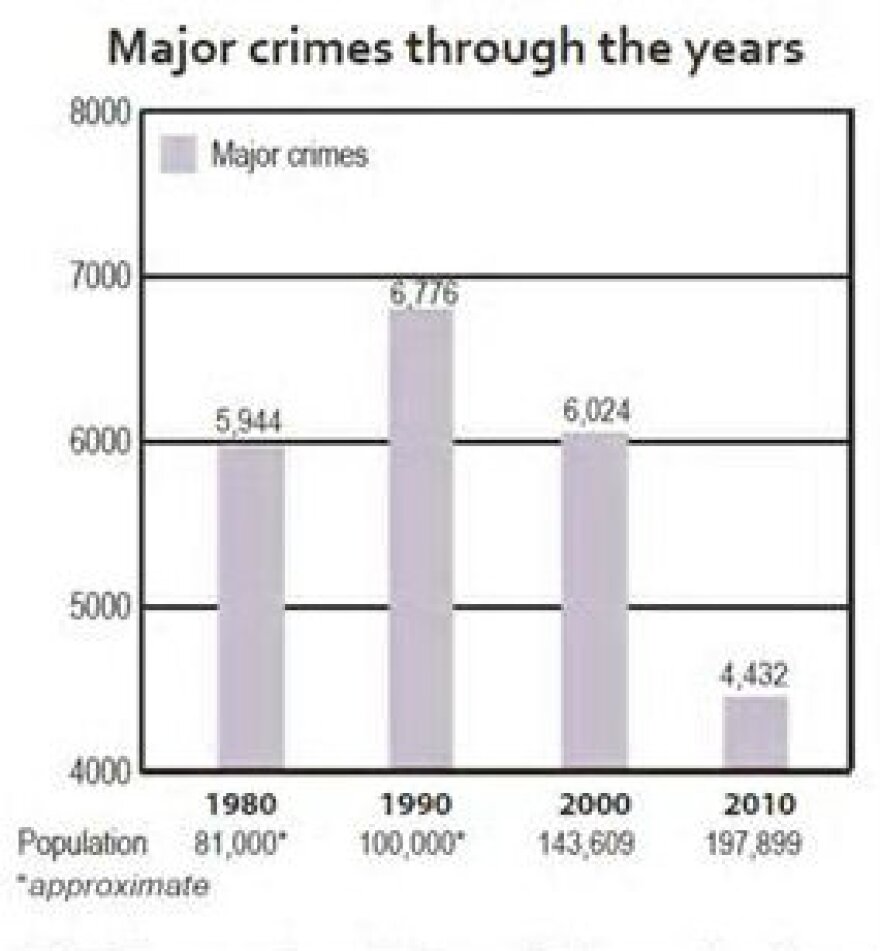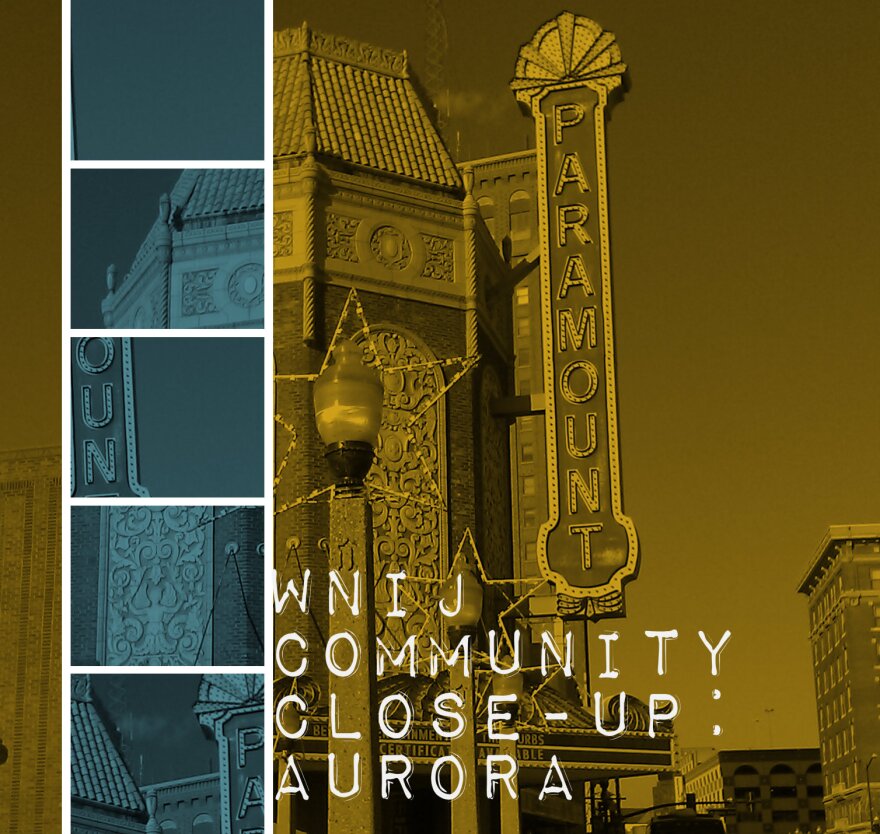We continue our series "Community Close-Up" with a look at a milestone in Aurora. For the first time since 1946, the city ended the year without a single murder. Now some city leaders want to reward officers for the achievement.
In a show of appreciation, Aurora Mayor Tom Weisner has proposed giving Aurora's sworn officers a $500, one-time bonus. A finance committee gave initial approval for the plan, but all of the city's aldermen still have to consider the measure.
Alderman Lynda Elmore says she thinks the bonuses are well-deserved.
Not everyone agrees. Speaking to WNIJ, Alderman Rick Lawrence calls the bonuses a "publicity stunt." He says he believes the city's officers are hard workers, but he adds that this accomplishment involved many people that will not receive a bonus, including dispatchers. He also adds that the effort to reduce the murder rate did not start last year alone, but was a decade in the making.
DAILY HERALD: Aurora Panel Supports Bonuses for Police
Aurora's non-existent murder rate drew extra attention since 2012 was particularly deadly in Chicago. There were more than 500 murders in the state's largest city for the year, marking a 16 percent increase from the year before.

Aurora Murders in Recent Years:
1996: 26 homicides (357 shots fired)
2009: 5 homicides
2010: 4 homicides
2011: 2 homicides
CHICAGO TRIBUNE: Aurora Ends 2012 with No Homicides
Aurora's police chief says the results of 2012 reflect a battle to decrease Aurora's violence that has been years in the making. The city worked with federal agents to go after top gang leaders. Police Chief Gregory Thomas says the results of those efforts are coming to fruition.
US NEWS: Inside the Feds' War on Gang Violence
Aurora Close-Up
Joseph McCarty came from New York seeking a new home. Reaching the Fox Valley, he built the first campfire in 1834 on the island, which is now the site of downtown Aurora. In 1837, when a Post Office was established, the village became Aurora, goddess of the dawn. Later, when the City was the first in the United States to use electric lights for publicly lighting the entire City, it achieved the nickname of “City of Lights”.
Aurora's population in 1946 was about 48,000 people. Aurora’s population has grown to 199,672, making it Illinois’ second largest city.
The violent crime rate has decreased more than 30 percent from 2006 to 2011 and more than 50 percent in the past decade. The city reports 26 murders in 2002, many attributed to gang violence -information from the city of Aurora
About Community Close-Up

The WNIJ audience includes a wide geographic area in diverse communities with a wide range of challenges and opportunities. This occasional series will inform our audience -- both on air and online -- of activities, opportunities and events in individual communities to build common understanding among listeners of the government, business and social climate in northern Illinois.











